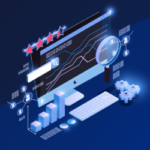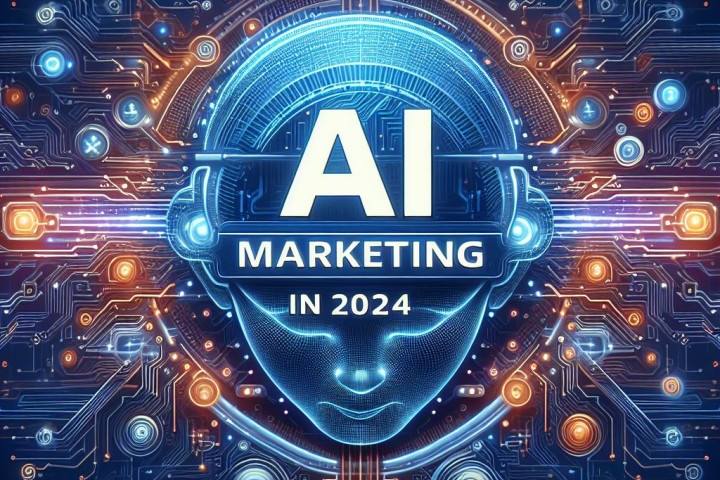
How AI Predictive Analytics Drives Smarter Marketing Decisions
January 24, 2025
How the PDPA Protects Individuals and Regulates Organizations in Singapore
February 3, 2025In today’s fast-paced digital economy, scaling marketing campaigns effectively has become one of the most significant challenges for businesses. The traditional approaches that worked a decade ago are no longer sufficient to meet the increasing complexity of marketing across multiple channels and customer touchpoints. This is where Artificial Intelligence (AI) has emerged as the ultimate game-changer, empowering marketers to achieve scalability, precision, and exceptional ROI.
In this comprehensive guide, we’ll discuss why AI is critical for scaling marketing campaigns in 2024, examine how businesses are leveraging AI to solve marketing challenges, and explore the cutting-edge trends shaping the future of AI-powered marketing.
The Complexity of Scaling Marketing Campaigns
Scaling marketing campaigns isn’t simply about increasing budgets or running campaigns on a broader scale. Instead, it’s about:
- Handling Vast Data Volumes
As businesses grow, they generate enormous amounts of data from various sources—social media, email campaigns, website analytics, and customer behavior. Analyzing and utilizing this data to drive meaningful decisions is increasingly complex. - Maintaining Personalization at Scale
Consumers now expect highly personalized experiences. Delivering this level of customization becomes more challenging as your audience grows. - Resource Constraints
Even with increased budgets, resources like time, skilled professionals, and tools can limit how effectively campaigns are executed and scaled. - Optimizing Multi-Channel Marketing
Marketing today spans multiple platforms, including social media, email, search engines, and more. Ensuring consistency and optimization across all channels is resource-intensive and prone to inefficiencies.
Without innovative technologies like AI, these challenges can lead to inefficiencies, higher costs, and missed opportunities.
Why AI is Essential for Scaling Marketing Campaigns
AI brings unprecedented efficiency, scalability, and precision to marketing. Its ability to analyze data, automate processes, and predict outcomes makes it indispensable in 2024’s complex marketing landscape.
1. Streamlined Data Analysis
AI excels at analyzing massive datasets quickly, identifying patterns, and uncovering actionable insights. With AI, marketers can:
- Detect emerging trends based on customer behavior and preferences.
- Segment audiences with unmatched accuracy.
- Use predictive analytics to forecast campaign performance and ROI.
For example, tools like Tableau and Google Analytics enhanced with AI capabilities help marketers interpret data faster and more effectively than ever before.
2. Hyper-Personalization at Scale
Modern consumers expect brands to engage them with personalized messaging. AI enables marketers to deliver:
- Tailored product recommendations based on user preferences and past behavior.
- Dynamic email content customized for each recipient.
- Personalized website experiences that adapt to a visitor’s actions in real-time.
Netflix is a leading example of hyper-personalization in action. Its AI algorithms analyze viewing habits and preferences to recommend content for each user, creating a uniquely tailored experience at scale.
3. Optimized Campaign Performance
AI takes the guesswork out of marketing by automating campaign management and optimization. With AI-driven platforms like HubSpot, Salesforce Einstein, and Adobe Sensei, marketers can:
- Perform real-time A/B testing to identify the most effective messaging and visuals.
- Automate bid adjustments in PPC campaigns for maximum ROI.
- Monitor campaign performance across platforms and adjust strategies dynamically.
Programmatic advertising, powered by AI, is another game-changer. It uses machine learning to buy and place ads automatically, optimizing placements and budgets in real-time.
4. Enhanced Audience Targeting
AI improves audience targeting by analyzing behavioral, demographic, and psychographic data. This ensures that campaigns reach the right audience at the right time.
With AI, marketers can:
- Build lookalike audiences to expand their reach effectively.
- Use predictive analytics to identify high-value customer segments.
- Leverage geotargeting to serve ads to audiences in specific locations.
For instance, Facebook Ads’ AI-powered targeting tools allow businesses to refine their audiences based on intricate behavioral and interest-based data, resulting in higher engagement rates.

5. Real-Time Campaign Optimization
One of AI’s most significant advantages is its ability to act on data in real-time. This enables:
- Dynamic adjustments to ad copy, visuals, and bids based on audience response.
- Rapid identification of underperforming campaigns, allowing for timely corrections.
- Continuous optimization of omnichannel marketing strategies.
Real-time optimization is particularly valuable during time-sensitive campaigns, such as Black Friday or holiday promotions, where every moment counts.
6. Cost and Resource Efficiency
Scaling campaigns often requires additional resources—whether it’s team members, time, or money. AI helps alleviate these constraints by automating labor-intensive tasks, such as:
- Content creation for ads, blogs, and social media posts.
- Campaign scheduling and performance reporting.
- Lead nurturing through AI-powered chatbots and email workflows.
By automating these tasks, AI frees up time for marketers to focus on strategic planning and creative initiatives.
Practical Applications of AI in Marketing
1. Content Creation and Distribution
AI tools like Jasper, Writesonic, and Grammarly assist in creating high-quality, engaging content tailored to specific audiences. Additionally, tools like BuzzSumo identify trending topics to guide content strategy.
AI also optimizes content distribution by determining the best platforms and times for maximum impact.
2. Social Media Management
AI platforms like Hootsuite and Sprout Social simplify social media management by:
- Scheduling posts for optimal engagement.
- Analyzing audience interactions to refine strategies.
- Generating actionable insights for improving future campaigns.
For example, AI algorithms can predict which hashtags will trend, ensuring your brand stays relevant in real-time.
3. Email Marketing
AI-driven email platforms like Mailchimp and ActiveCampaign enhance email campaigns by:
- Crafting personalized subject lines and content.
- Predicting the best times to send emails for maximum open rates.
- Analyzing past performance to refine strategies.
4. E-commerce Optimization
AI enhances the e-commerce experience by:
- Offering personalized product recommendations.
- Optimizing pricing strategies through dynamic pricing algorithms.
- Forecasting inventory needs to avoid overstocking or stockouts.
Amazon’s AI-driven recommendation engine is a prime example, driving significant revenue through personalized suggestions.
5. Customer Support
AI-powered chatbots and virtual assistants provide 24/7 support, answering common queries and resolving issues efficiently. Predictive analytics also anticipates customer needs, enabling proactive support.
How to Integrate AI into Your Marketing Strategy
1. Define Clear Objectives
Identify what you aim to achieve with AI—whether it’s improving ROI, enhancing personalization, or scaling campaigns across platforms.
2. Invest in the Right Tools
Choose AI platforms that align with your goals. Leading options include Google Analytics 4, Salesforce Einstein, Adobe Sensei, and HubSpot.
3. Prioritize Data Quality
AI relies on accurate and comprehensive data. Ensure your data is clean, up-to-date, and well-organized for the best results.
4. Train Your Team
Educate your marketing team about AI tools and how to use them effectively. Upskilling your workforce ensures you maximize your AI investment.
5. Start Small and Scale Gradually
Begin with pilot campaigns to test AI’s effectiveness before scaling its use across all marketing initiatives.

Trends Shaping AI-Powered Marketing in 2024
1. Hyper-Personalization
AI algorithms will continue to refine personalization, enabling one-to-one marketing experiences.
2. Voice and Visual Search Optimization
As voice and visual search grow in popularity, AI will adapt marketing strategies to align with these search behaviors.
3. Predictive Content Creation
AI tools will become more adept at predicting the type of content audiences want, making content creation faster and more efficient.
4. Real-Time Insights and Analytics
Marketers will gain access to real-time analytics, allowing for immediate campaign adjustments.
5. Ethical AI Practices
With increasing scrutiny on data privacy, businesses will focus on ethical AI practices to maintain customer trust.
Conclusion
In 2024, AI is no longer a luxury—it’s a necessity for businesses looking to scale their marketing campaigns. From streamlining data analysis to delivering hyper-personalized experiences, AI empowers marketers to overcome the challenges of scale while maximizing efficiency and ROI.
By integrating AI into your marketing strategy, you’re not just keeping up with the competition—you’re staying ahead of the curve. Embrace AI today and unlock the full potential of your marketing campaigns!


